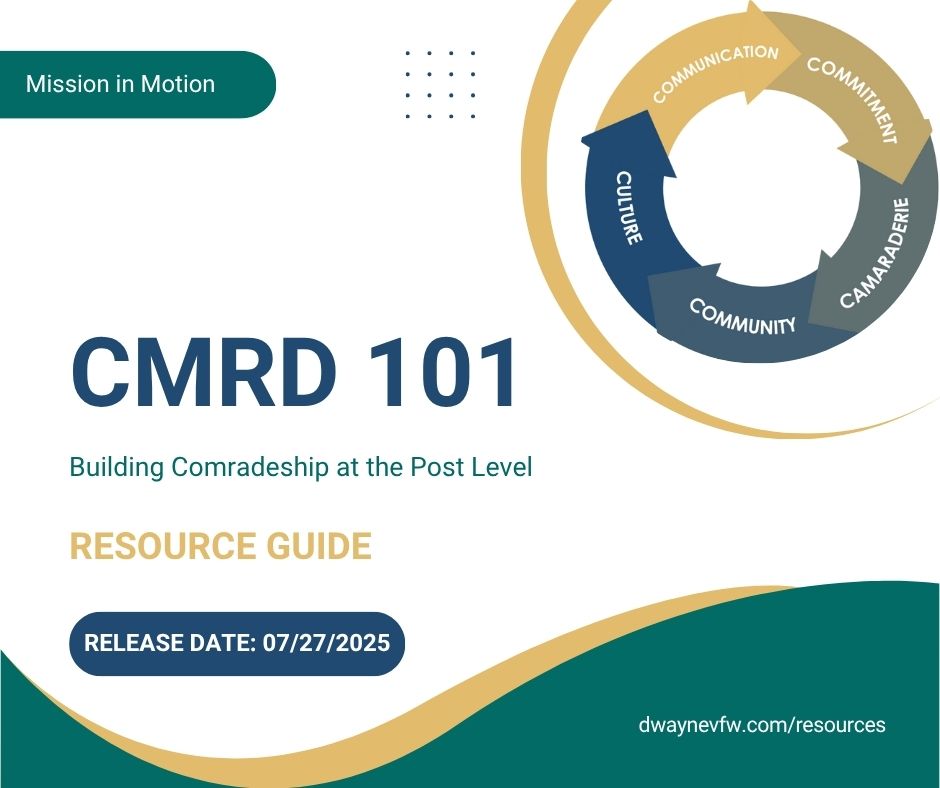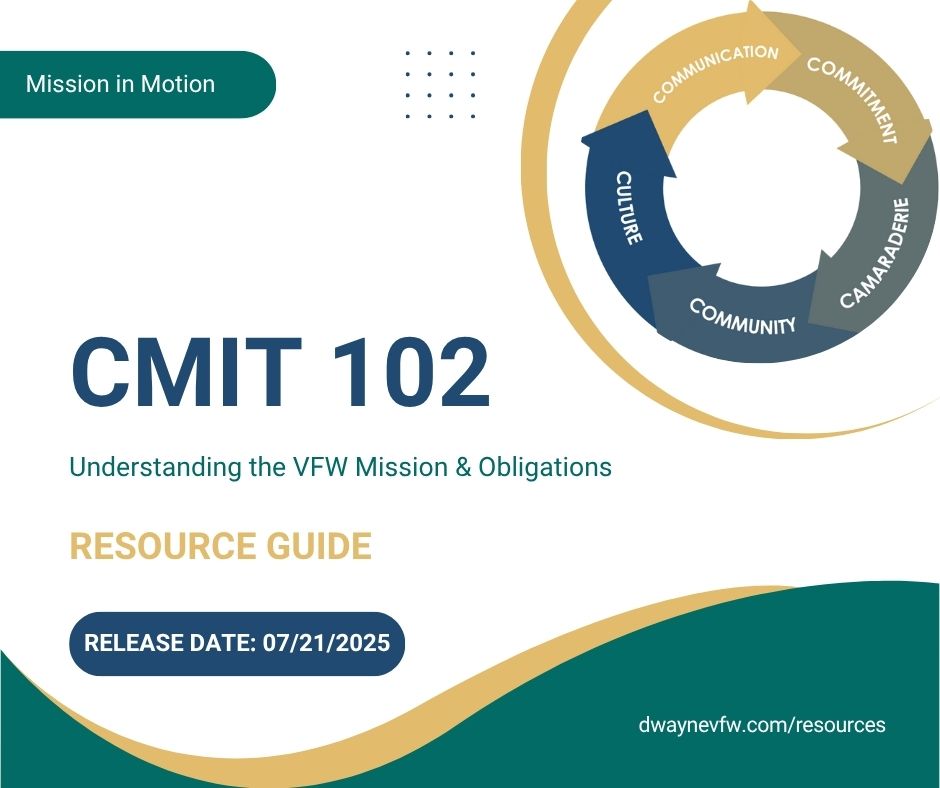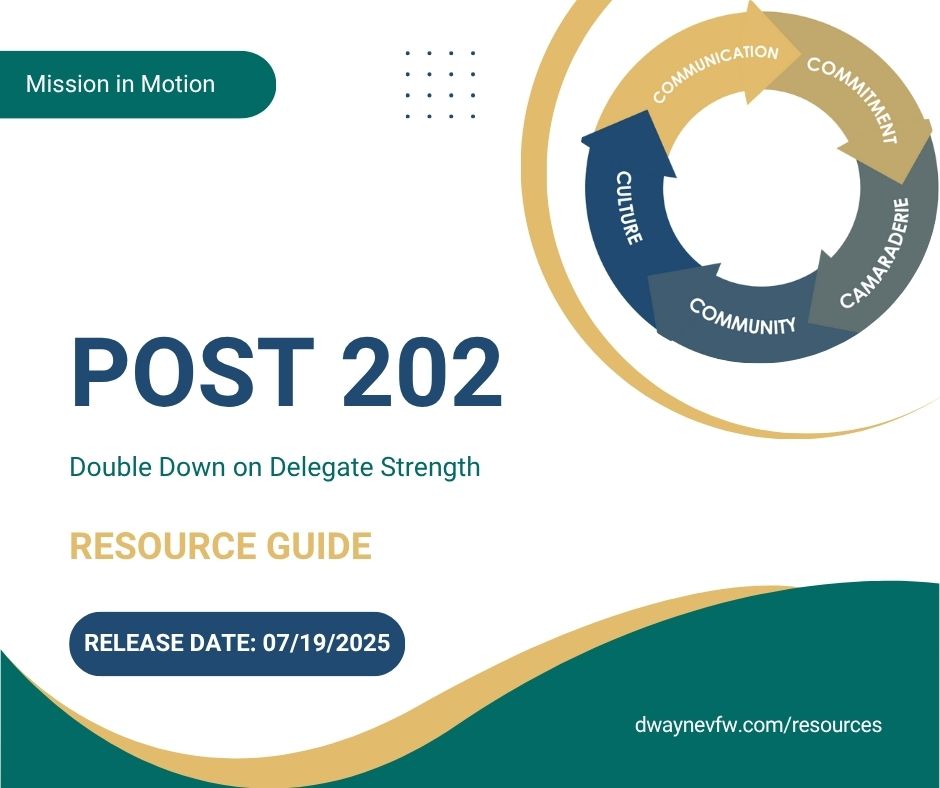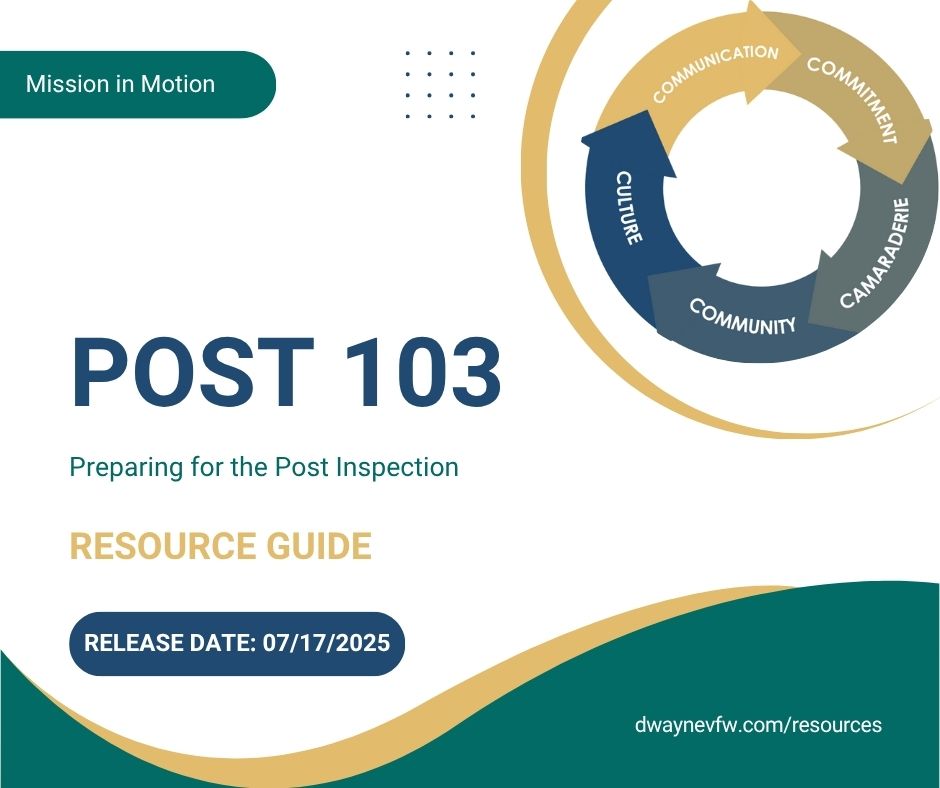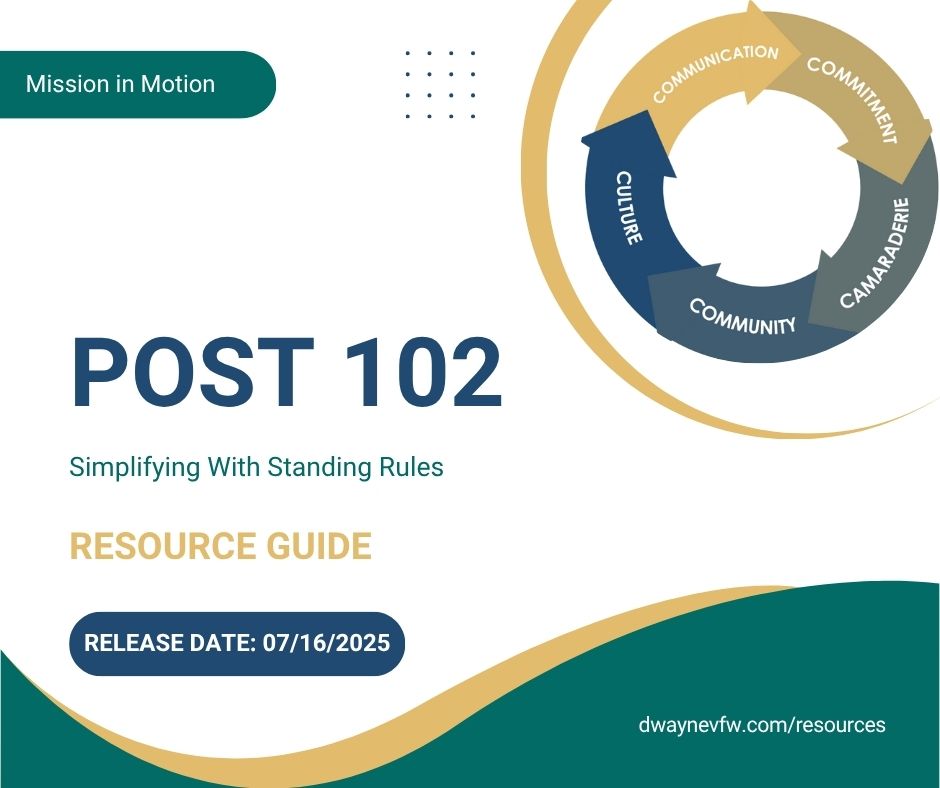In the military, the buddy system is a foundational practice built on mutual trust, accountability, and shared responsibility. It’s a simple concept – look out for your fellow service members. In the Veterans of Foreign Wars (VFW) and other veteran communities, this principle extends far beyond the battlefield and into our everyday lives, especially when it comes to conducting buddy checks. These outreach efforts are more than a wellness check; they are life-saving conversations that reinforce camaraderie and build a culture of care within our own ranks.
What Is a Buddy Check?
A buddy check is a meaningful outreach to a fellow veteran to ensure they’re doing well – physically, mentally, and emotionally. This outreach is exceptionally intentional. While the term has gained popularity during recent Suicide Prevention Awareness campaigns and national observances like “Buddy Check Week,” its real power lies in consistent, grassroots application. This starts at the Post-level, and its overall success depends on comrades at that Post-level! A buddy check can be a phone call, a text, a social media message, or an in-person visit. The goal is simply to connect, listen, and remind one another that we are not alone.
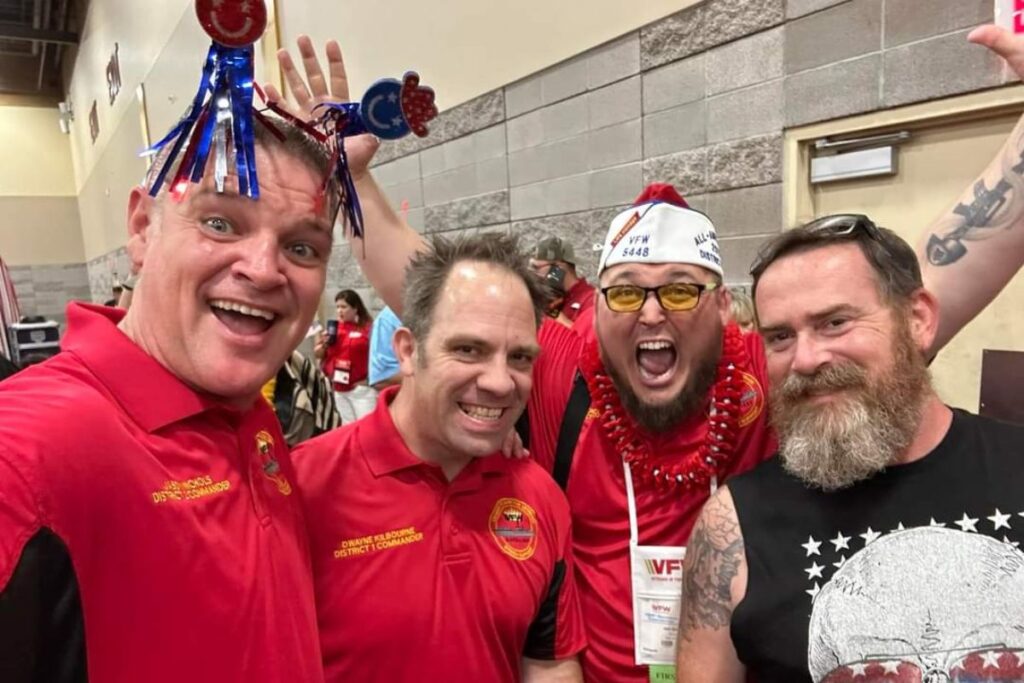
Why Buddy Checks Matter
Isolation is one of the most significant threats facing veterans today. After transitioning out of uniform, many veterans will experience a disconnection from the sense of purpose and camaraderie they once enjoyed in uniform. Left unchecked, this can lead to depression, substance abuse, or even suicidal ideation. Buddy checks help interrupt that isolation and remind veterans they’re part of a continuing mission, a mission that is rooted in support, service, and solidarity.
Reports show various statistics about this growing epidemic, and many suicides go underreported, misclassified, and possibly ignored. While there’s no single solution to this crisis, community-driven efforts like buddy checks play a vital role in prevention. A well-timed call or conversation can truly be the difference between despair and hope.
Tips for Conducting Effective Buddy Checks
- Be Intentional
Don’t wait for the perfect time. Set a goal to check in on a certain number of comrades each week or month. Be proactive, especially after major holidays, anniversaries of loss, or national events that may stir emotions. RECOMMENDATION: Each Post member should be contacted AT LEAST once per quarter, and the comrade should not just be contacted when the Post needs something from him or her (i.e. membership dues renewal, volunteer need, or donation need). Also, remember that these checks occur outside of the other communications (i.e. Post Newsletters, event updates, etc.). - Use Multiple Channels
Not every veteran uses social media or answers calls from unknown numbers. Instead of leaning on one universal approach, try a variety of communication methods like texts, voicemails, direct messages, and even handwritten notes. RECOMMENDATION: Understand your audience and where they communicate. This is CRITICALLY IMPORTANT! If you send out a weekly or monthly newsletter email and use platform like Mailchimp or Constant Contact, make sure to review the analytics. By looking at the email open data, you will reveal which comrades are seeing your information. If you notice someone has not opened something in a month or two, maybe you should confirm that comrade’s email address and communication preferences! - Ask Open-Ended Questions
Move beyond “How are you?” The goal is to go beyond “yes and no” questions. For example, you may want to ask: “What’s been going on lately?” or “How are things at home or work?” These types of questions invite conversation rather than a quick dismissal. REMEMBER: Your fellow comrades are not just some number or a name on a roster sheet. They are your fellow brothers and sisters – they are family! - Listen Without Judgment
The most powerful part of a buddy check is being present. You’re not there to fix everything; you’re there to listen. Create a safe space for honesty and vulnerability. RECOMMENDATION: If the comrade opens up about a challenge he or she is facing, remember that it is personal information and is not for open distribution to the masses. However, if there are warning signs during the discussion, you will want to work with your fellow leaders within the Post to help the comrade find the right assistance. - Know Your Resources
Be prepared with contact information for local veteran services, crisis hotlines, food banks, or VA offices. If someone is in distress, having a direct path to help can be critical. RECOMMENDATION: Try to be as proactive as possible. While the requests and challenges can significantly vary, having the basic resources at your fingertips will enable the Post to assist more efficiently and effectively. Build a Resource Book that lists community partners that lead the way in areas like food insecurity, utilities or lodging assistance, accredited service officers, and employment assistance. - Follow Up
One check-in is good; consistent check-ins are better. Make it a habit. Add your buddy to your calendar or set a recurring reminder. REMINDER: Your fellow comrade might have asked you to help with something in the recent conversation; be sure that you are doing all you can to get the information promised and follow up with him or her.
Buddy Checks in the VFW
The VFW encourages every Post to integrate buddy checks into their routine operations. Whether it’s through a structured outreach team or informal member-to-member contact, these checks align perfectly with the VFW’s mission of service and support. They also provide an opportunity to re-engage inactive members, check in on aging comrades, and welcome new members with compassion.
A Call to Action
If you’re reading this, consider it your cue: conduct a buddy check today. Reach out to someone you served with, a member of your Post, or a veteran in your community who might need to hear a familiar voice. You don’t need a script; you just a sincere heart and a few minutes of your time.
Because in the end, it’s not just about checking a box, it’s about checking in on a life. When we keep the buddy system alive, we keep each other alive. And that’s a mission we all share.

